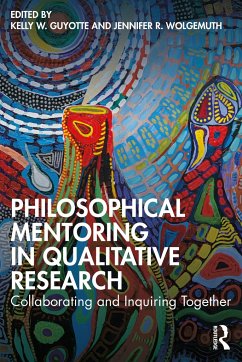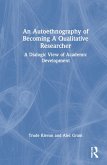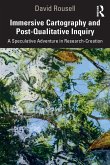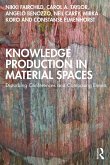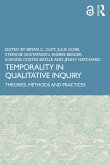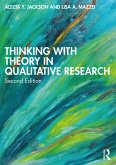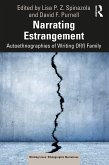With contributions from advanced, early career, and emerging qualitative scholars, Philosophical Mentoring in Qualitative Research illuminates how qualitative research mentoring practices, relationships, and possibilities of inquiry and teaching come to life under different mentoring philosophies.
What we can know in and about the world is inseparable from our approach(es) to knowing with and in it. And how we mentor in qualitative research matters to what we can know and do as qualitative inquirers. Yet, despite its importance, mentoring is rarely conceptualized as a practice inspiring or inspired by philosophy. This edited book opens a needed space for thinking about mentoring as a philosophical practice. Its thoughtful chapters and artful "mentoring moments" draw on critical, feminist, new materialist, post-structuralist, and other philosophies to make visible, interrupt, reflect, deepen, and expand mentoring practices within the qualitative community revealing what we can know, do, and become through them.
Philosophical Mentoring in Qualitative Research sensitizes readers to mentoring as a philosophical practice. As such, it is essential reading for students and researchers in qualitative research and higher education interested in mentoring practice and humanistic research values.
What we can know in and about the world is inseparable from our approach(es) to knowing with and in it. And how we mentor in qualitative research matters to what we can know and do as qualitative inquirers. Yet, despite its importance, mentoring is rarely conceptualized as a practice inspiring or inspired by philosophy. This edited book opens a needed space for thinking about mentoring as a philosophical practice. Its thoughtful chapters and artful "mentoring moments" draw on critical, feminist, new materialist, post-structuralist, and other philosophies to make visible, interrupt, reflect, deepen, and expand mentoring practices within the qualitative community revealing what we can know, do, and become through them.
Philosophical Mentoring in Qualitative Research sensitizes readers to mentoring as a philosophical practice. As such, it is essential reading for students and researchers in qualitative research and higher education interested in mentoring practice and humanistic research values.
"Finally! Too often mentoring gets flattened and overly simplified. But here Dr. Guyotte and Dr. Wolgemuth have curated and edited a volume that offers conditions for possibility, opportunities for mentoring to matter differently, and possibilities for liberation. Most appreciated is the ways the collection of chapters, images, poems, and mentoring moments reveal mentoring from the perspectives of students, junior and senior scholars all committed to Philosophical Mentoring in Qualitative Research: Collaborating and Inquiring Together." -- M. Francyne Huckaby, Associate Dean, TCU School of Interdisciplinary Studies, Professor of Curriculum Studies, TCU College of Education & Center for Public Education, USA
"This edited collection begins with the premise that mentoring is a relational practice and that such relations need not be hierarchical in order. This necessarily inventive orientation shifts the terrain upon which mentoring is understood, even practiced: power relations disperse; subject distinctions (of mentors, mentees) blur; newly creative practices emerge. It is here that this important text takes seriously the notion of mentoring as a philosophical practice, one that necessarily entails a way of relational living that exceeds the traditional bounds of the academy and the ordering of method. As a result, this text will be useful-even inspiring-to mentors, mentees, and mentor-mentees alike." -- Aaron M. Kuntz, Frost Professor of Education and Human Development, Department Chair, Counseling, Recreation, School Psychology, Florida International University, USA
"Philosophical Mentoring in Qualitative Research: Collaborating and Inquiring Together addresses the diverse forms that qualitative mentoring might take, inviting readers to consider mentoring as philosophical practice. In this edited collection, authors describe the productive possibilities of engaging with uncertainty, discomfort, and the unexpected within relational approaches to mentorship that value caring and ethical connections with humans, non-humans and the more-than-human. Thought-provoking and refreshing, the book engages readers in envisioning new possibilities with respect to how qualitative researchers are always becoming -- whether novice or experienced, or in formal or informal spaces. Filled with poems, narratives, conversations, and images, this collage of chapters and mentoring moments provides a dazzling array of alternative approaches to thinking about and engaging in mentoring relationships. Read on and savor!" -- Kathryn Roulston, Professor of Qualitative Research, Department of Lifelong Education, Administration, and Policy, University of Georgia, USA
"This edited collection begins with the premise that mentoring is a relational practice and that such relations need not be hierarchical in order. This necessarily inventive orientation shifts the terrain upon which mentoring is understood, even practiced: power relations disperse; subject distinctions (of mentors, mentees) blur; newly creative practices emerge. It is here that this important text takes seriously the notion of mentoring as a philosophical practice, one that necessarily entails a way of relational living that exceeds the traditional bounds of the academy and the ordering of method. As a result, this text will be useful-even inspiring-to mentors, mentees, and mentor-mentees alike." -- Aaron M. Kuntz, Frost Professor of Education and Human Development, Department Chair, Counseling, Recreation, School Psychology, Florida International University, USA
"Philosophical Mentoring in Qualitative Research: Collaborating and Inquiring Together addresses the diverse forms that qualitative mentoring might take, inviting readers to consider mentoring as philosophical practice. In this edited collection, authors describe the productive possibilities of engaging with uncertainty, discomfort, and the unexpected within relational approaches to mentorship that value caring and ethical connections with humans, non-humans and the more-than-human. Thought-provoking and refreshing, the book engages readers in envisioning new possibilities with respect to how qualitative researchers are always becoming -- whether novice or experienced, or in formal or informal spaces. Filled with poems, narratives, conversations, and images, this collage of chapters and mentoring moments provides a dazzling array of alternative approaches to thinking about and engaging in mentoring relationships. Read on and savor!" -- Kathryn Roulston, Professor of Qualitative Research, Department of Lifelong Education, Administration, and Policy, University of Georgia, USA

